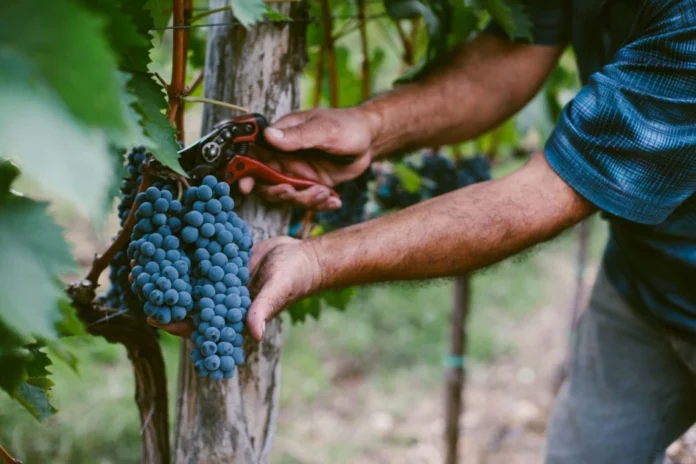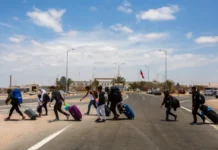Three employers in France’s prestigious champagne industry are set to face trial on Thursday, accused of human trafficking and the exploitation of dozens of migrant workers during the 2023 grape harvest season.
The trial, taking place in the Châlons-en-Champagne criminal court in eastern France, stems from an investigation into the working and living conditions of around 50 seasonal laborers, mainly from Mali, Mauritania, Ivory Coast, and Senegal. According to investigators, the workers were subjected to “degrading and unsanitary” housing conditions that endangered their health, safety, and dignity.
At the center of the case is the director of Anavim, a viticultural service company that provided both labor and accommodation. She faces charges of human trafficking, employing undocumented migrants, and placing vulnerable individuals in undignified living conditions. Two other men are also charged with the illegal employment of seasonal workers. Both Anavim and a local viticultural cooperative will be tried as corporate entities.
Authorities were alerted after a neighbor raised concerns in the village of Nesle-le-Repons. Prosecutor Annick Browne described the housing as dangerously dilapidated, with filthy shared toilets, exposed electrical wiring, and outdoor kitchens lacking protection from the elements. The Marne regional administration ordered the site closed in September 2023, citing “unsanitary” and “inhumane” conditions.
“The defendants have shown total contempt for human dignity,” said Maxime Cessieux, the lawyer representing several of the exploited workers.
The case has drawn national attention and marks a legal first: the powerful Champagne Committee — representing over 16,000 winemakers and hundreds of producers — will join the proceedings as a civil party. “We are firmly opposed to these unacceptable practices,” said Committee Director Charles Goemaere in a statement earlier this year.
The trial comes amid broader scrutiny of labor practices in France’s agricultural sector, which relies heavily on seasonal migrant workers. Around 120,000 such workers are brought to the Champagne region each year to handpick grapes across 34,000 hectares of vineyards. The industry’s image was further tarnished in 2023 after four grape pickers died, believed to be from heatstroke during an intense harvest season.
“The public must understand the extent of human trafficking in agriculture,” said David Desgranges, vice-president of the Committee Against Modern Slavery (CCEM). “Producers must know they can and will be held accountable.”
French law defines human trafficking as the exploitation of individuals through coercion, abuse of vulnerability, or deception, including forced labor and substandard living conditions.
The trial is expected to last several days, with significant implications for labor practices in one of France’s most iconic and lucrative industries.
Written By Rodney Mbua



















